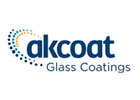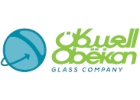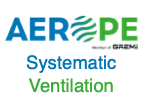Motorhomes, camper vans and expedition vehicles are sometimes exposed to extreme weather as well as altitude and temperature differences while touring around the world. Therefore, the windows they are fitted with must also meet particularly high requirements. This is precisely where the start-up extremfenster steps in with its specially developed SKI aluminium windows. Thanks to the SWISSPACER Air integrated into the cavity between the panes, these windows can withstand enormous differences in height and climate loads.
From idea to realisation
The idea to develop a special window for motorhomes came to managing director Constantin Hanov-Blum while he was planning a trip around the world in 2019. For this purpose, the enthusiastic globetrotter from Mittenwalde converted a decommissioned fire engine into a touring vehicle. The conversion also included plans for the windows and doors. Constantin Hanov-Blum recalls, “I couldn’t find a suitable solution on the market, so I ended up constructing a narrow, lightweight window from aluminium myself, precisely tailored to the requirements of the motorhome.” The feedback he received on the initially developed prototypes was extremely positive at the time – and so the company extrem was born a short while later.
Specially constructed window system
The SKI aluminium window developed by extremfenster has a stable sash as well as a flush frame made from insulated, thermally broken aluminium profiles. Thanks to the three sealing layers all round, the construction is totally dust- and watertight. High-quality, stainless steel scissor hinges guarantee easy and infinitely variable opening. Regarding the glazing used, Constantin Hanov-Blum explains, “Initially, we wanted to install double glazing in the form of toughened safety glass, but above all we also had to factor in suitability for high altitudes, due to the extreme loads that occur on tours in a wide range of climate zones. Precisely because of the small pane sizes used in touring vehicles, the climate-related loads are very high.” While searching for possible solutions, the experienced inventor came across SWISSPACER Air.
SWISSPACER Air – pressure-equalised insulating glass units at every height
The SWISSPACER Air is installed in the glazing edge of the air-filled insulating glass unit. It minimises the overpressure or underpressure caused by height differences and climate loads, since the metal sleeve with integrated special membrane ensures the equalisation of pressure between the surrounding air and the cavity between the panes. Its special structure prevents vapour from being able to accumulate in the cavity between the panes, which would otherwise cause the formation of condensation or damage the metallic low-e coatings. The insulated glass unit retains its function and quality over the long term through permanent pressure equalisation. A usual service life can thus be achieved – even in the presence of climatic loads.
The danger of bulging panes, glass breakage and premature ageing due to excessive stress on the glazing edge is significantly reduced. Constantin Hanov-Blum points out, “The insulating glass has road approval and can be used in practically every climate condition. The vehicles can travel around the world and at any height.”
Depending on project requirements, SWISSPACER Air has been used at extremfenster in the SKI aluminium windows and other constructions for more than three years. The specially developed glazing units have already successfully survived an expedition to the volcanoes of Mexico at a height of 4,400 metres and the Andes at a height of 3,500 metres. And a touring vehicle converted for a customer will shortly set off for Elbrus – the highest peak in the Caucasus, at 5,642 metres. Here, too, the SWISSPACER Air ensures the required pressure equalisation in the cavity between the panes.
Further developments planned for extreme climate conditions
However, the development of glazing units that are suitable for use at high altitudes is far from over. Every day, the extremfenster team works on new solutions that promise even better performance. Constantin Hanov-Blum says, “We are currently building a Saint-Gobain glazing unit with a special coating to create an insulating glass unit with vehicle approval. These panes would block almost the entire infrared warmth and ensure that the interior does not heat up.” Last but not least, the specialists are working on glazing units that are even more resistant to vibrations and driving rain. Real extreme windows, in fact.

























